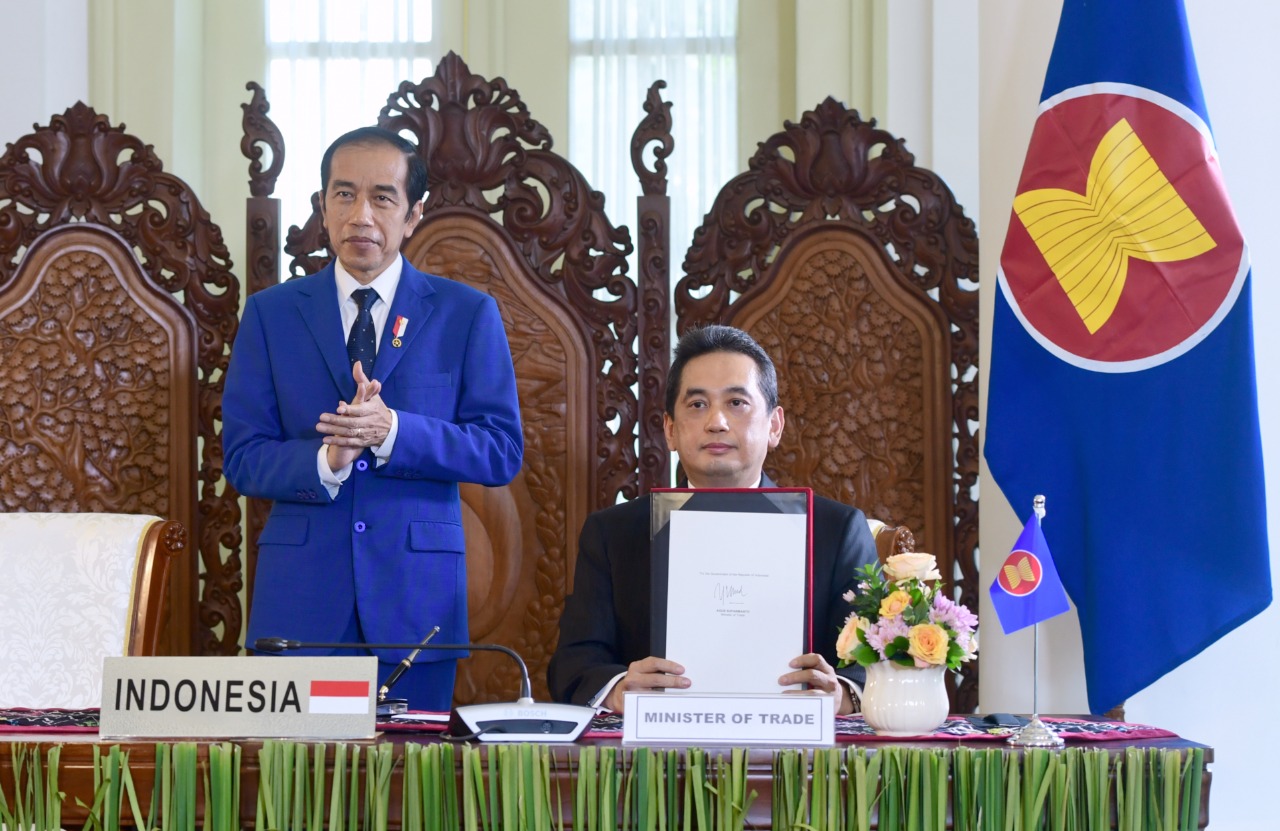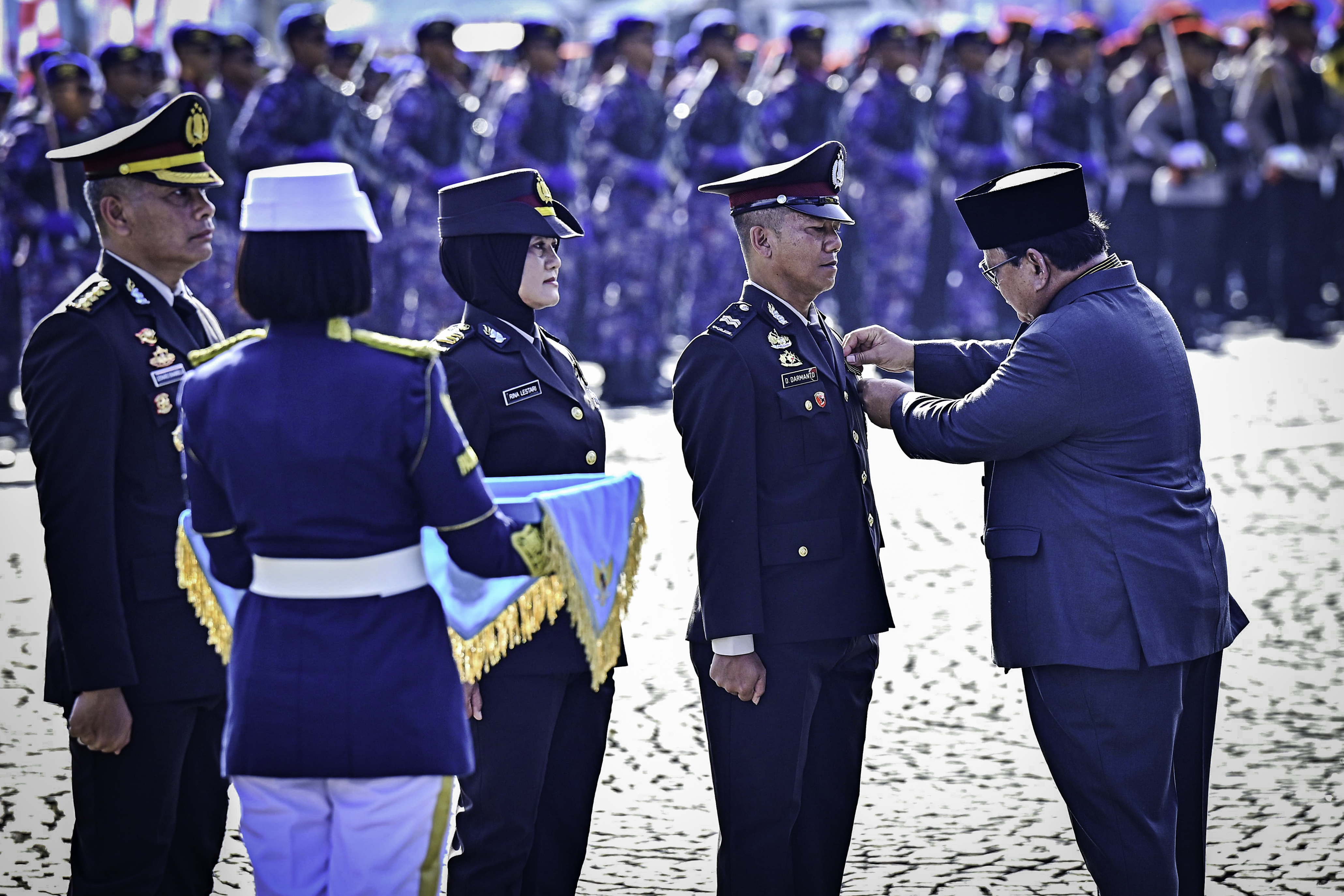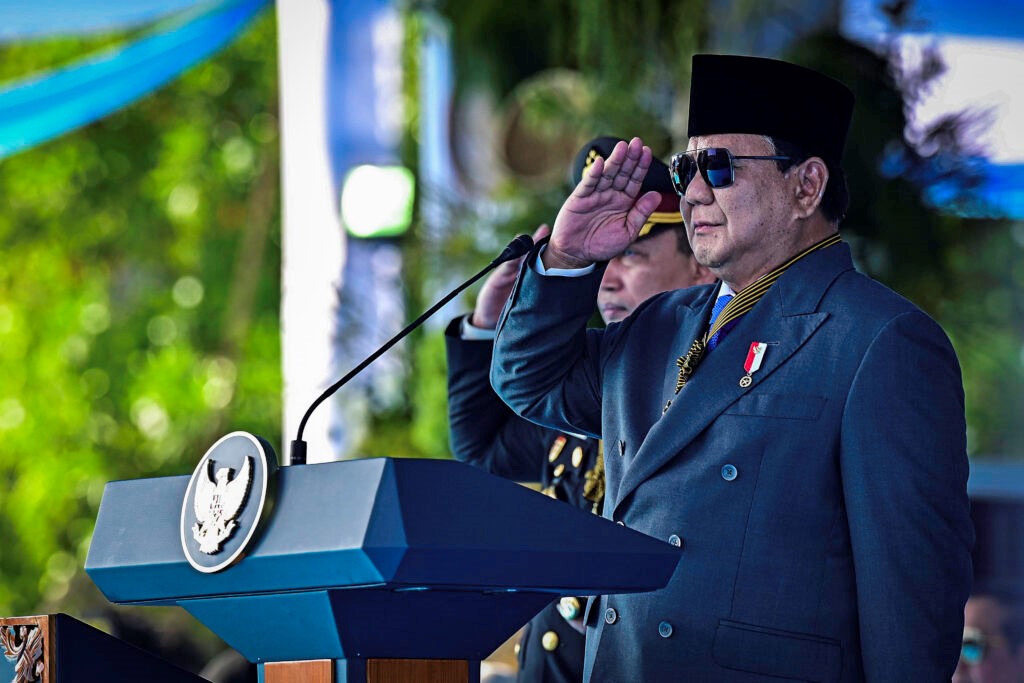Minister: Indonesia’s Export to Increase 7.2 Percent Following RCEP Agreement

President Jokowi and Trade Minister Agus Suparmanto after the signing of RCEP, Sunday (15/11), at the Bogor Palace, West Java. (Photo: BPMI/Muchlis)
The newly-signed Regional Comprehensive Economic Partnership (RCEP) is projected to boost Indonesian export to member countries by 8-11 percent and increase investment by 18-22 percent, Minister of Trade Agus Suparmanto has said.
“Indonesia can also enjoy the spillover effect of the FTA (Free Trade Agreement) signed by RCEP member countries and non-member countries. The expansion of Indonesia’s role through the global supply chain from this spillover effect has the potential to boost Indonesia’s exports to the global market by 7.2 percent,” he said.
For the record, the RCEP was signed by fifteen countries on Sunday (15/11).
Those fifteen countries include 10 ASEAN countries and 5 ASEAN partners, namely China, Japan, South Korea, Australia and New Zealand.
“The fifteen countries that have signed the RCEP agreement cumulatively represent 29.6 (percent) of the global population, 30.2 percent of world GDP (gross domestic product), 27.4 percent of world trade, and 29.8 percent of world FDI (foreign direct investment),” Agus said.
According to the Minister, Indonesia’s export data to 14 RCEP member countries for the last five years showed a positive trend of 7.35 percent.
“In 2019, total non-oil and gas exports to the RCEP countries represented 56.51 percent of Indonesia’s total exports to the world, which is worth US$84.4 billion. Meanwhile, from the import side, the RCEP represents 65.79 percent of Indonesia’s total imports from the world, which is worth US$102 billion,” he explained.
Agus also noted that the benefits of the RCEP for Indonesia can be realized if Indonesia makes fundamental changes by strengthening competitiveness as a permanent agenda in all sectors of the economy, both software and hardware, goods and services, large entrepreneurs and MSMEs, as well as government and private sectors.
“There is no other way to benefit the RCEP other than increasing competitiveness because that is what other countries are doing continuously, both member or non-member countries,” he said.
The Minister went on to say that the RCEP is a bold idea initiated by Indonesia to maintain ASEAN centrality in entering the global supply chain more deeply.
The agreement, he added, was a long process of plenary negotiations totaling 31 rounds and there was also an intercession negotiation at the working group leads only level and the ministerial level, both in caucus and plenary formats.
“Our hard work for eight years produced an agreement of 14,367 pages, which is divided into 20 chapters, 17 annexes, and 54 schedule commitments that bind all fifteen member countries without requiring a single side letter,” the Minister said, adding that the RCEP agreement is expected to become a catalyst for Indonesia to enter the global value chain deeper and help accelerate the national economic recovery post COVID-19. (SLN / UN)
Translated by: Estu Widyamurti
Reviewed by: M. Ersan Pamungkas








